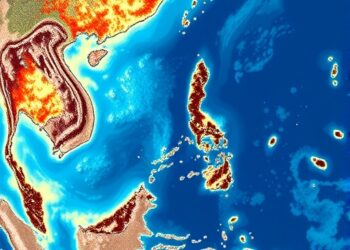The U.S. Office of Naval Research is tapping academic expertise at the University of Michigan to solve current and future problems, Secretary of the Navy Carlos Del Toro announced during his visit to campus over graduation weekend.
The $14.5M Center for Naval Research and Education will also help train an engineering research community familiar with naval and marine applications.
“I am incredibly proud of the partnership between the University of Michigan and the Department of the Navy. Michigan is a key teammate in rebuilding our shipbuilding industry and restoring the comprehensive—commercial and naval—power of our nation,” he said. “I am committed to growing our Department’s relationship. We truly would not have the world’s most powerful Navy if not for our nearly 150-year partnership.”
The strengthened partnership will help prepare naval engineers for the challenges imposed by rapidly changing marine environments and maritime technology.
“The maritime environment is going to be different in the next 25 to 30 years,” said Krishnan Mahesh, director of the Center for Naval Research and Education, the Richard B. Couch Professor of Naval Architecture and Marine Engineering, and professor of aerospace engineering and mechanical engineering.
“Climate change is already changing the marine environment, and advancements such as artificial intelligence are revolutionizing what we can do. That’s going to create new problems and opportunities for the Navy and other maritime organizations, and we need people who can develop next generation solutions.”
To tackle these challenges, the center will build multidisciplinary teams focused on research topics such as:
- Studying how films of algae and bacteria impact vessel performance and how to prevent resulting performance issues
- Discovering ways to make vessels move more quietly through water
- Harnessing energy from waves
- Understanding flow-induced damage to design tougher hull materials
- Discovering ways to provide more control over vessel drag and maneuverability, such as morphable skin and highly water-repellent surfaces
The center will spur research in the identified focus areas by building and supporting multidisciplinary teams of U-M faculty, postdoctoral and student researchers, along with engineers from the U.S. Navy that specialize in each area.
“By collaborating with Navy experts, our students and faculty will gain a valuable perspective on emerging maritime challenges and develop new solutions to tackle pressing scientific problems,” said Steve Ceccio, interim dean of the College of Engineering, the Vincent T. and Gloria M. Gorguze Professor of Engineering, and professor of mechanical engineering and naval architecture and marine engineering.
The relationships between U-M and Navy researchers built by the center are expected to help bring discoveries from academic research into maritime technology and operations more quickly.
“If new recruits come in with the skills needed to work on our problems, they can contribute to our projects much faster,” said Joel Hartenberger, a test engineer at the U.S. Naval Surface Warfare Center, Carderock Division in Maryland who is participating in the biofouling team and is a U-M doctoral graduate of naval architecture and marine engineering.
“At Michigan, I developed a skill set that allowed me to jump right into some of the Navy’s engineering projects, and I believe the center will extend that opportunity to more young engineers.”
Supporting student research in the center’s focus areas will also provide students with more opportunities to gain direct experience working with Navy engineers on real problems, equipping them to tackle future maritime challenges.
“The Office of Naval Research applauds the university for its efforts to lead in areas of fundamental science and technology challenges of the future,” said Thomas Fu, head of the Sea Warfare and Weapons Department of the Office of Naval Research. “The core of the Center for Naval Research and Education is a group of highly talented, energetic, multidisciplinary postdoctoral, graduate and undergraduate student researchers who create a vibrant and intellectually stimulating environment.”




